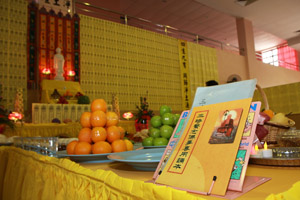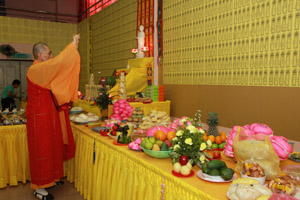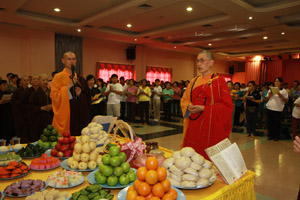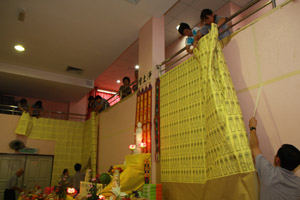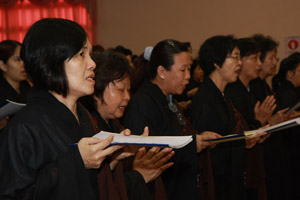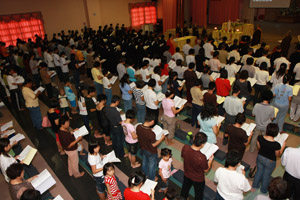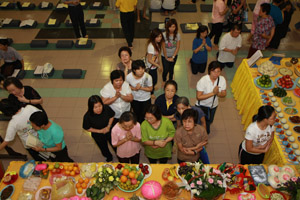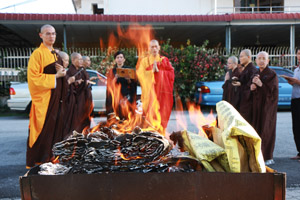Submitted by Ah Jin on
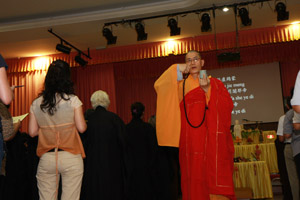
The 2009 Qing Ming Dharma assembly was held on the 29 April from 1pm to 6pm.at the Than Hsiang Multi-purpose hall. Qing ming is the equivalence of the “all soul day “ of the West. The celebration of this festival is an indication of the importance of the filial piety –a virtue much treaured in the oriental society. Therefore, we always expect the huge crowd to thronge the temple every year to perform chanting and pay respect to their departed next of kins .
For the Chinese, it is a day to remember and honor one's ancestors at grave sites. Young and old pray before the ancestors, sweep the tombs and offer food, tea, wine, chopsticks, (joss) paper accessories, and/or libation to the ancestors. The rites are very important to most Chinese .
Despite having no holiday status, the overseas Chinese communities in Southeast Asian nations such as those in Singapore and Malaysia take this festival more seriously; deep in heritage, rituals and strict decorum. Qing Ming in Malaysia is an elaborate family function or a clan feast (usually organized by the respective clan association) to commemorate and honor their late relations at grave site and their distant ancestry of China at home altar, clan temple or a makeshift altar in a Buddhist or Taoist temple. For the oversea community, Qing ming festival is very much a family heritage and at the same, a family obligation. The oversea Chinese see this festival as a time to reflect, honour and give thanks to their forefathers. The oversea Chinese normally visit the graves of their late relations at the nearest weekend of the actual date. According to the ancient custom, grave site veneration is only feasible 10 days before and after Qing Ming festival. If the visit is not on the actual date normally veneration before Qing Ming is encouraged. Qing Ming festival in Malaysia and Singapore normally started early in the morning, with the ancestral veneration at home altar- paying respect to the distant ancestors from China. This would be followed by visiting the graves of their close relations in the country. Some would take the extent of filial piety to visit the graves of their ancestors in mainland China. After the ancestor worship at the grave site, the whole family or the whole clan would be feasting the food and drinks they brought for the worship at the site or nearby gardens in the memorial park, signifying family reunion with the ancestors.
